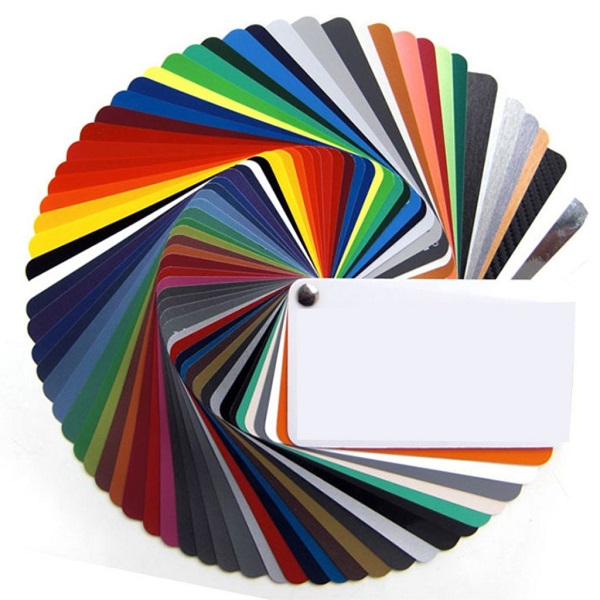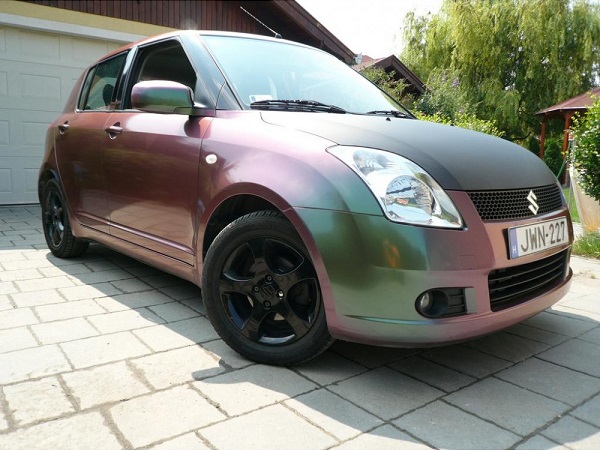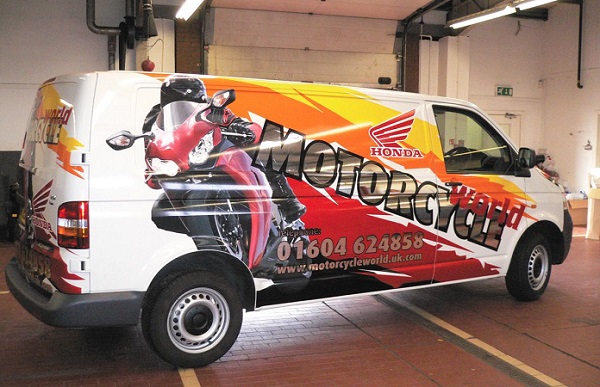Vinyls in general are manufactured in one of two ways; "calendaring" or "casting".
While at first glance these vinyls appear similar their differences become apparent over time, and when applied in demanding environments.
The differences are in the manufacturing process and also in the plasticizers and stabilizers used. Cast vinyls are manufactured in a less stressed process than used in the manufacture of "calendared" vinyls. Cast films have the resin poured to form an extremely thin layer onto a very smooth surface before going through curing ovens. Cast vinyl generally have better dimensional stability, color pigmentation, UV stability, and higher gloss levels.
"Calendared" vinyls are manufactured differently, using an "extruded" or "rolled" process which is more stressful on the PVC resulting in less dimensional stability in the direction it was rolled, it is however a lot cheaper than cast films. Calendared vinyl are either 'monomeric' or 'polymeric' dependent on the plasticizer’s molecular structure.
Monomeric vinyls use plasticizers with a smaller molecule size so there is more molecular migration than in polymerics and will therefore have more effect on the adhesive and laminates used. These shorter chains of molecules also make the vinyl brittle when used in more demanding environmental conditions over time and resulting in shrinkage or "pulling".
Polymeric vinyls have longer molecular chains and larger molecules allowing less migration from the vinyl and so have less effect on the adhesive and will aid better longevity, flexibility and additional film stability with less shrinkage.
It is possible to buy monomeric or polymeric vinyl in either "calendared" or "cast" though it is pretty rare to get a monomeric cast film and most usually a cast film is a polymeric type of vinyl. The type of plasticizers used will have a noticeable effect on digital printing and how conformable the vinyl is. Polymerics are generally a lot better to print on than monomeric due to the surface plasticizers.



CALENDERED VINYLS:
Calendared vinyls are less dimensionally stable and may shrink due to the mechanical manufacturing process whereby the PVC retains 'memory' of it's original form and will attempt to return to this original form.
PVC is naturally a rigid material so 'plasticizers' are added to soften the vinyl for practical use, other additives are 'stabilizers' in the vinyl to protect against the effects of heat, UV light and also to create colored vinyls.
Two types of calendaring are currently available; 'monomeric' and 'polymeric' - differentiated by the two types of plasticizers used in their manufacture. It is worth noting that these two types of calendared vinyls perform slightly differently in one direction than the other (i.e.: in machine direction and cross machine direction).
THE PRO'S AND CON'S OF MONOMERIC VINYLS:
Monomeric vinyls contain plasticizers which use short-chain chemical bonds so don't bind into the film as efficiently so will more easily migrate from the film leaving it brittle over time. Monomeric films are suitable for most internal applications and selective short-term external applications, are generally quite stiff so can be harder on blade wear and are barely conformable over contours so are recommended for flat-sided applications only.
RECOMMENDED USE: Interior work and short term external applications where life span is expected to be 2, 3 and 3-5 years and are usually 75-85 microns thick.
PROS:
Ideal for flat sided applications
Suitable for most customers job requirements
Can be lower in price than polymeric and cast vinyls
Short to medium life span
Stiffer/thicker films make handling easier
The thicker films allow for greater abrasion resistance
Usually 75-85 microns thick
Expected life span is 2, 3 and 3-5 years
CONS:
Not suitable for applications onto uneven or contoured surfaces
Can be susceptible to slight shrinkage over the life span of the vinyl
THE PRO'S AND CON'S OF POLYMERIC VINYLS:
Polymeric vinyls, sometimes known as 'stabilized films' or 'extended life films' contain long-chain plasticizers which allow them to bind into the film more efficiently, thus reducing the migratory effect. These films are generally less prone to shrinkage, typically 50% less than a Monomeric vinyl.
Polymerics feel softer and in general have a longer outdoor life expectancy compared to monomeric.
These films are primarily available in a gloss finish, although translucent and matt finishes are also obtainable.
They are suitable for most external applications, but conformability over complex contours is somewhat limited.
RECOMMENDED USE: Interior work and intermediate external applications where cast films are not an option. Polymeric vinyls are ideal for flat or slightly curved surfaces, with a 5-7 year and 8+ years life span and are most usually 70-75 microns thick.
PROS:
Longer life span than monomeric
No shrinkage
Ideal for flat and slightly curved applications
Stiffer/thicker films make handling easier
The thicker films allow for greater abrasion resistance
Usually 70-75 microns thick
Expected life span is 5-7 years and 8+ years life span
CONS:
More expensive than monomeric calendared vinyls
CAST VINYLS - THE PRO'S AND... WELL, THE PRO'S!
Cast vinyls are the choice where dimensionally stable applications are required.
The liquified resin is coated onto a highly polished substrate i.e. casting paper, to produce an extremely thin film of vinyl. Due to the lack of mechanical force being used cast films do not retain 'memory' as with calendared vinyls, consequently shrinkage is minimal (typically 50% less than polymeric films).
Cast films are generally very soft to handle and are easier to cut, weed and apply than calendared alternatives.
Cast films are primarily available in a high gloss finish and are the ultimate in terms of conformability over complex contours i.e. rivets, corrugations etc. and are the preferred option for the most extreme exterior applications and vehicle wraps.
All the ingredients used in the production of cast vinyl are of the best quality so performance is superior in terms of temperature ranges, colorfastness etc. is generally better than that of calendared films.
Cast films also perform equally well in both directions, i.e. in machine and cross machine direction.
RECOMMENDED USE: Due to a cast films long life, stability and quality it is suitable for most types of work where there is any doubt as to which type of vinyl is best to use, and is a premium vinyl for interior and external applications. Normally cast films are 8-10-year films and are 50-60 microns thick, soft, thin and flexible so are ideal for all types of vehicle wraps.
PROS:
The longest life span for vinyls
The quality raw materials used give cast vinyls the highest levels of durability
No shrinkage
Soft, flexible and thin so is conformable over complex contours (i.e. rivets, corrugations etc) as well as for use on flat sided surfaces
A greater level of vinyl color choices are available
Bespoke colors can be more easily manufactured than with calendared vinyls
Color matching between batches is more accurate
Cast vinyls maintain vinyl color and other properties better than other vinyl films, resulting in better pigments and UV absorber performance
Usually 50-60 microns thick
Expected life span is 8-10 years
CONS:
None! If a high level of conformability and/or durability is needed then Cast vinyls are your choice




